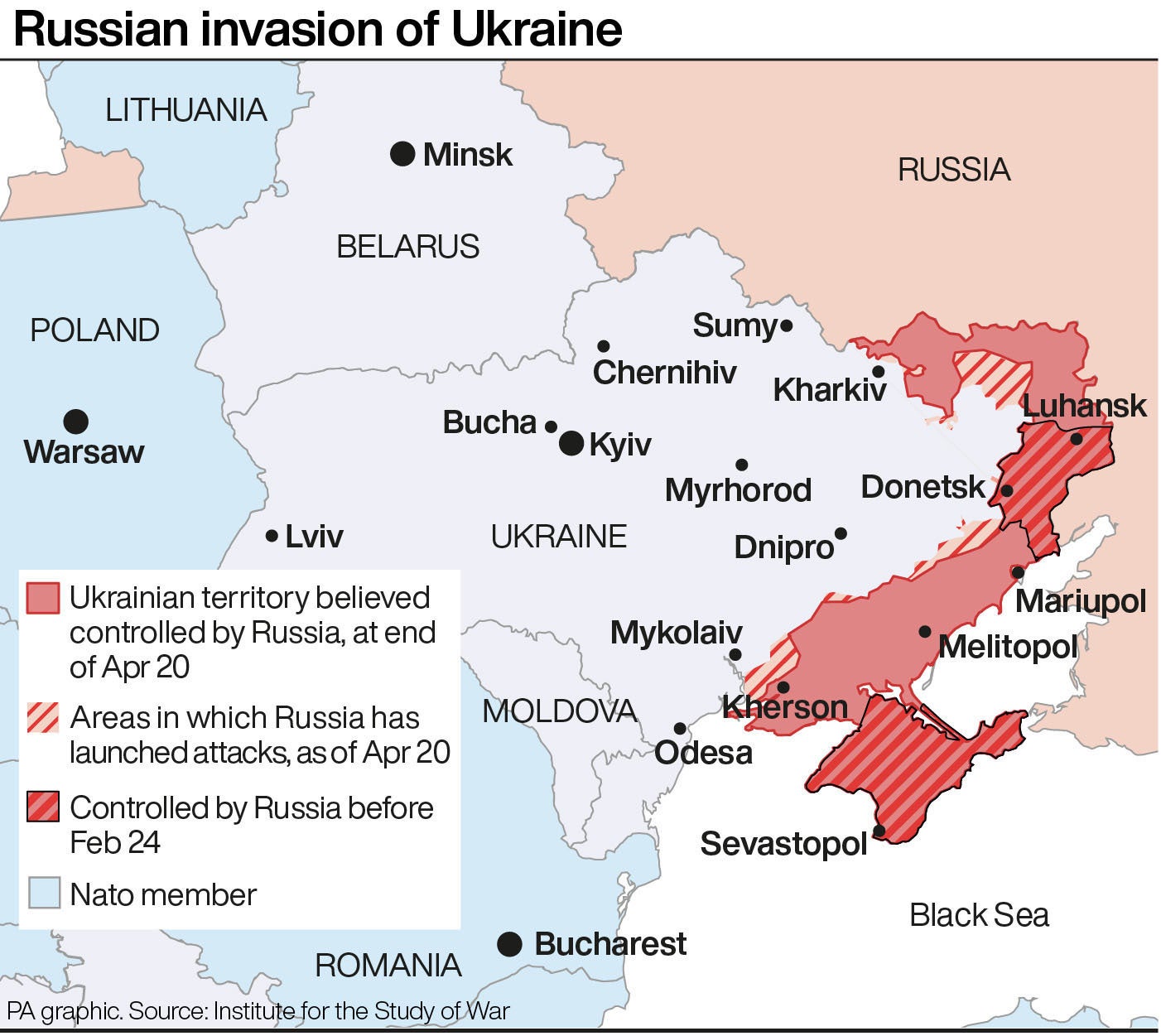
Russia’s foreign ministry has accused Britons captured fighting with the Ukrainian armed forces in Mariupol of being “mercenaries” but said they are being given any assistance they need.
In a statement posted on social media, Russian Federation ministry of foreign affairs spokeswoman Maria Zakharova claimed the UK Government had “disavowed the British subjects who have fallen victim to British propaganda and went to Ukraine as mercenaries to kill people there”.
In a reference to Nottinghamshire man Aiden Aslin, who appeared handcuffed in a YouTube “interview” apparently conducted in Donetsk earlier this week, Ms Zakharova said: “Boris Johnson has urged the Russian government to treat the Briton detained in Mariupol while fighting on the side of the Ukrainian government forces ‘humanely and compassionately’.
“Here is what we have to say in this respect.
“Don’t pretend to be worried.
“You are utterly unconcerned about the fate of Britons in trouble.
“They didn’t drink champagne with you at Downing Street, and so they can wait for your protection till kingdom come.”

The statement went on to say that Russia was taking care of British captives, who also include 48-year-old Shaun Pinner.
Urging the UK to cease the delivery of weapons to Ukraine, the Russian foreign ministry statement said of British prisoners: “They are given food and drink, as well as any other assistance they may need, just as the other foreigners who have surrendered or have been detained.”
Mr Aslin, 28, was taken prisoner while serving with the Ukrainian marines in Mariupol, and a video of him being warned that “mercenaries” faced the death penalty led to calls for the footage to be removed by YouTube.
Speaking to BBC Radio 4’s PM programme on Wednesday, the Conservative MP for Newark Robert Jenrick said a prisoner swap was the most likely route to get Mr Aslin to safety.
The MP had earlier told the Commons the video showed his constituent “handcuffed, physically injured and being interviewed under duress for propaganda purposes”.

Mr Johnson responded to Mr Jenrick’s comments by telling MPs: “I understand that he had been serving in the Ukrainian forces for some time and his situation was very different from that (of) a mercenary.
“I hope that he is treated with care and compassion.
“I thoroughly echo the sentiments my right honourable friend has expressed about those who broadcast propaganda messages.”
In a statement issued on Tuesday, relatives of Mr Aslin denounced claims he was a “volunteer, a mercenary, or a spy” as propaganda issued by the Kremlin.
They said: “In 2018 Aiden moved to Ukraine where he met his girlfriend and eventually settled down in Mykolaiv.
“Aiden decided to join the Ukrainian marines and has served in his unit for nearly four years.
“He is not, contrary to the Kremlin’s propaganda, a volunteer, a mercenary, or a spy.”
Prisoners’ rights must be properly respected from the moment they’re captured
Kristyan Benedict, Amnesty International UK’s Crisis Response Campaign Manager, said: “Aiden Aslin’s family have every right to be concerned about him appearing in videos as a form of Russian state propaganda.
“The Third Geneva Convention specifies that, as part of the obligation to treat PoWs humanely, they should be protected from public curiosity.
“PoWs are supposed to be treated humanely and with respect at all times, not hauled before television cameras in handcuffs.
“We’ve already seen footage of prisoners on both sides appearing in the public domain and this must stop. Prisoners’ rights must be properly respected from the moment they’re captured.
“We hope and expect the UK government will protest against Aiden Aslin’s mistreatment – as well as the mistreatment of any prisoners of war – in the strongest terms, while also informing the authorities in Kyiv that they too must cease showing Russian PoWs on television.”







